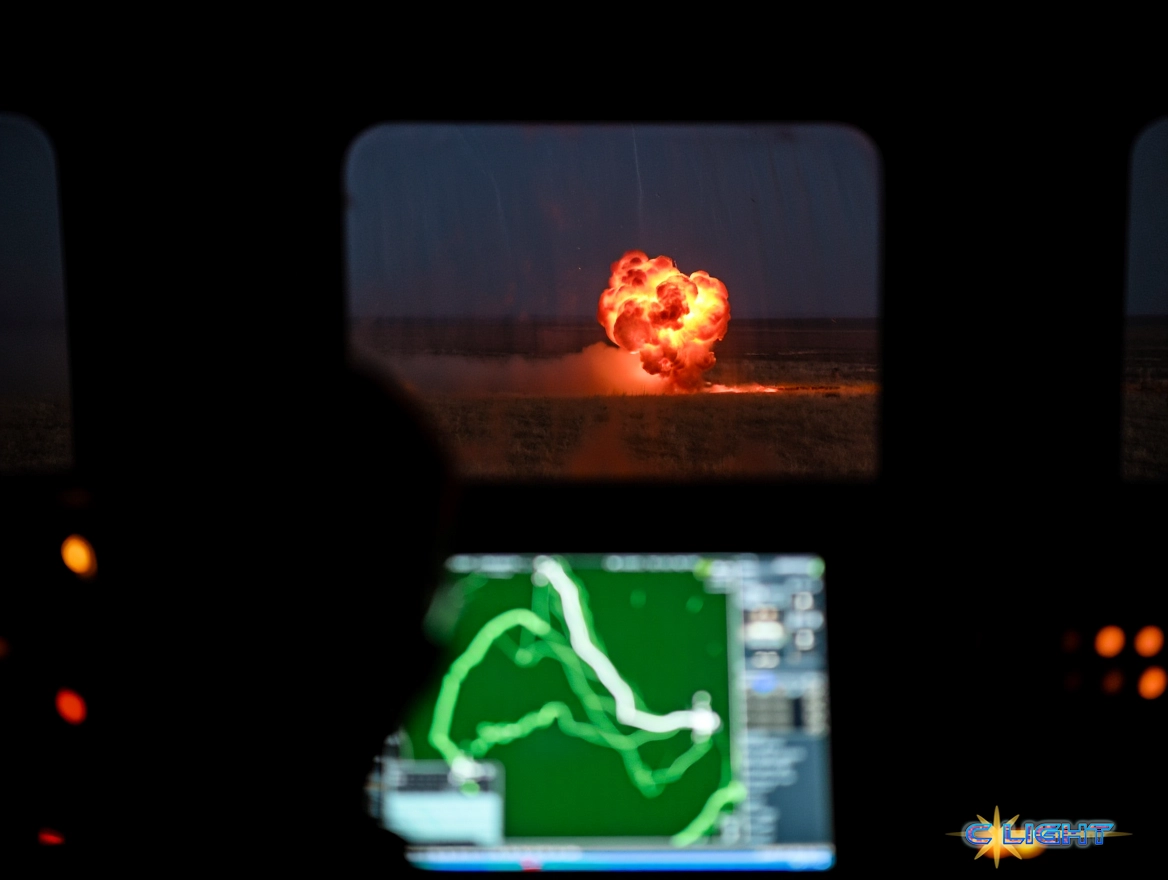5 minutes read time.
The air raid sirens that have become a nightly feature of life in Ukraine blared across the border into Poland in the early hours of Wednesday morning, a chilling acoustic trespass that heralded a far more tangible violation. As Polish citizens in the eastern regions of Podlaskie, Masovia, and Lublin were ordered to shelter indoors and Warsaw’s Chopin Airport suspended flights, a historic and dangerous first was unfolding in the skies above: a multi-national, coordinated NATO air defense effort was shooting down a swarm of Russian drones. This incursion pushed Europe, in the stark words of Polish Prime Minister Donald Tusk, “the closest we have been to open conflict since World War Two.” In response to what it has labeled a deliberate “act of aggression,” Warsaw has officially announced it will seek formal consultations under NATO’s Article 4, elevating a border violation into a continent-wide security crisis.
The incident unfolded against the backdrop of one of Russia’s most intense aerial assaults on Ukraine, a massive barrage of over 415 drones and dozens of cruise missiles targeting fifteen different regions. Amidst this chaos, a significant number of Russian drones veered west. Polish authorities have confirmed at least 19 drones violated their airspace, with Ukrainian President Volodymyr Zelenskyy suggesting the number could be as high as “two dozen,” some of which were “apparently” approaching targets inside Poland itself. This was no minor border clipping; the Polish Interior Ministry later confirmed that seven drones had been found on the ground, including two deep inside the country in central and northern Poland, hundreds of kilometers from any border. The incursion had an immediate physical impact, with debris from one of the downed drones striking a house in the village of Wyryki Wola.
While Russian objects have strayed into Polish airspace before—including a 2022 incident where a likely Ukrainian air defense missile killed two people—the scale and perceived nature of Wednesday’s event were unprecedented. The military response was immediate, robust, and historic. In what a NATO spokesperson described as “the first time NATO planes have engaged potential threats in Allied airspace,” a multinational force scrambled to defend Poland. Dutch F-35 fighter jets, operating under NATO command, joined Polish forces in the shootdowns. The broader alliance was placed on high alert, with German Patriot defense systems in Poland activated, an Italian airborne early warning plane launched for surveillance, and an aerial refueler from NATO’s tanker fleet deployed to support the fighters. “Actions speak louder than words,” Tusk posted on social media, congratulating the Polish and NATO pilots for their successful defense.

The violation has been widely condemned across Europe as a deliberate provocation, not an accident. “Indications suggest it was intentional,” said EU foreign policy chief Kaja Kallas, calling it the gravest airspace violation of the war. Czech Prime Minister Petr Fiala asserted it was “hard to believe” it was a coincidence, accusing Russia of “systematically probing to see how far it can go.” The situation is further complicated by evidence that a “significant” number of the drones originated from Belarusian territory, potentially implicating a key Russian ally in the aggression. The Belarusian Defense Ministry issued a statement claiming the drones flew off course due to signal jamming and that they had tried to warn Polish authorities, an explanation met with deep skepticism in Western capitals.
The Kremlin, for its part, has reverted to its classic playbook of stonewalling. “We wouldn’t like to comment on this,” spokesman Dmitry Peskov told reporters, dismissing the unified European outrage as routine, baseless accusations. But the reaction from NATO members has been anything but routine. From Lithuanian President Gitanas Nausėda, who declared “Russia is deliberately expanding its aggression,” to UK Prime Minister Keir Starmer, who called it an “egregious and unprecedented violation,” the condemnation was swift and universal. Even Russia-friendly Hungarian Prime Minister Viktor Orbán labeled the incursion “unacceptable.”
In Warsaw, the government is moving to activate Article 4 of the North Atlantic Treaty, a formal procedure for when a member state feels its “territorial integrity, political independence or security” is threatened. While not the automatic collective defense clause of Article 5, the invocation of Article 4 is a rare and deeply serious step, triggering formal consultations among all 32 members of the alliance. “We absolutely should apply Article 4,” said former NATO officer Lieutenant Commander Artur Bilski, noting the difference between past incidents and this “large-scale and deliberate action.” In a more direct diplomatic rebuke, Russia’s temporary chargé d’affaires, Andrey Ordash, was summoned to Poland’s Foreign Ministry to receive a formal protest.

For many analysts, this dangerous escalation is the predictable result of a flawed Western policy. As one BBC analyst noted, for years, the West’s response to Russian aggression has been moderated by a fear of provoking Moscow. This “escalation management” has been a one-way street, as the Kremlin, having put its economy on a war footing, “is free from such concerns” and feels emboldened to test the limits of NATO’s resolve. The immediate economic consequences of this instability were felt in the markets, as the Polish zloty fell 0.5% against the euro and the Warsaw stock index dropped 2.6% in early trading.
Prime Minister Tusk has attempted to walk a fine diplomatic line, simultaneously signaling strength while trying to prevent a full-blown panic. “I have no reason to claim we’re on the brink of war,” he told his parliament, “but a line has been crossed, and it’s incomparably more dangerous than before.” The incident has shattered the illusion of a contained conflict. For the first time, NATO has been forced into direct kinetic action against Russian military assets over its own territory. The response to Poland’s Article 4 consultation will now determine whether Vladimir Putin’s probe is seen as a costly mistake or a successful test that invites further aggression. The security of Europe hangs in the balance.
Discover more from Clight Morning Analysis
Subscribe to get the latest posts sent to your email.










